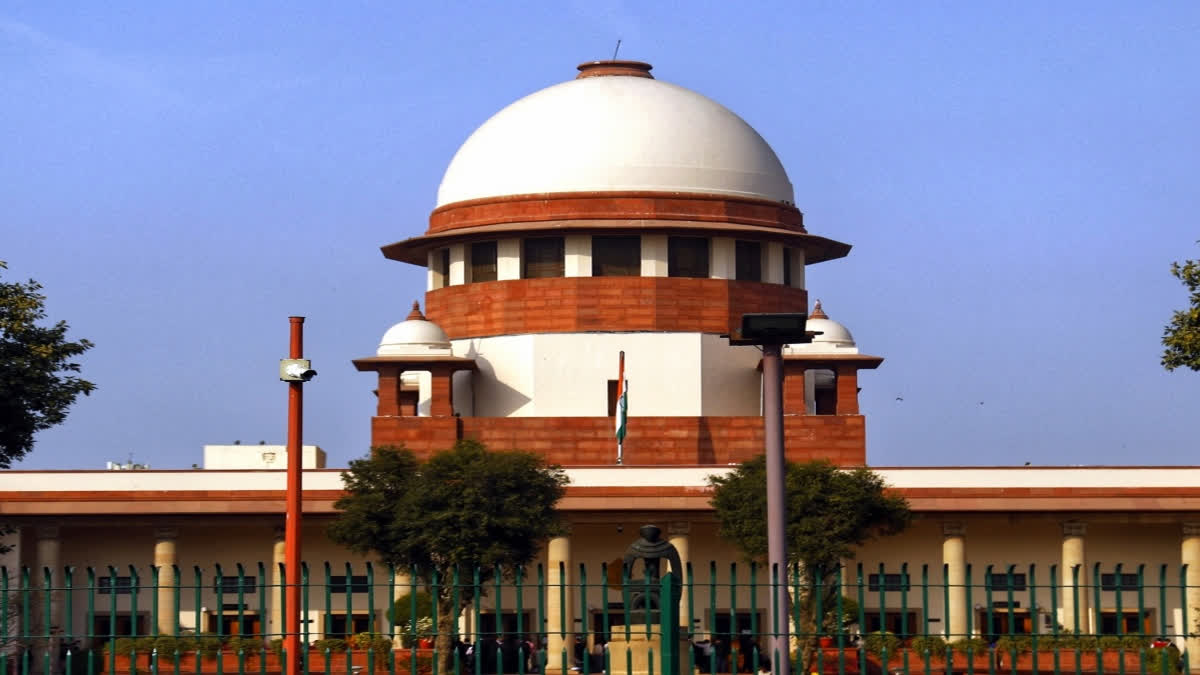New Delhi: The Supreme Court on Friday recalled its August 2022 judgment, which had declared Section 3(2) of the Benami Transactions Prohibition Act, 1988, as unconstitutional.
A three-judge bench led by Chief Justice of India D Y Chandrachud noted that the constitutionality of the provisions of the unamended Benami Transactions Act was never raised or argued in the original proceedings. The apex court allowed the Centre's review plea.
The bench, pronouncing the order, noted that it appears that Section 3 (2) of the unamended provision of the Benami Transactions Prohibition Act 1988, as unconstitutional for being manifestly arbitrary and violative of Article 20 (1) of the Constitution.
It observed that the provision of Section 5 of the unamended Act prior to the amendment of 2016 has been declared to be unconstitutional on the ground that they are manifestly arbitrary.
The CJI said: “After hearing the submission of the counsel, it is undisputed that there was no challenge to the constitutional validity of the unamended provision. As a matter of fact, it is clear from the formulation of the question which arose for consideration before the bench…..the review would have to be allowed”.
The CJI said: “It is trite law that the challenge to the constitutional validity of a statutory provision cannot be adjudicated upon in the absence of contest between the parties…”.
The bench said: “The issue of constitutional validity was not squarely addressed. We accordingly allow the review petition and recall the judgment dated August 23, 2022. The civil appeal accordingly stands restored for fresh adjudication for a bench to be nominated by the Chief Justice on the administrative side”.
The apex court clarified during the hearing that the review bench was not pronouncing anything on the validity of the provisions and that the matter was left for fresh consideration.
Solicitor General Tushar Mehta, representing the Centre, contended that it was clear from the judgment itself that neither of the parties raised any argument regarding unconstitutionality. He added that the judgment struck down the unamended provisions, although they were amended in 2016.
The August 2022, judgment held that the 2016 amendment to the Benami Act would not have a retrospective effect.
In 2022, a three-judge bench presided over by then Chief Justice N V Ramana struck down the provisions of the Benami Transactions (Prohibition) Act of 1988, which provided for imprisonment for a term that may extend to three years or with fine or with both for those indulging in 'benami' transactions.
While terming Section 3(2) as “unconstitutional” on the ground of being “manifestly arbitrary" and violative of Article 20(1) of the Constitution, the bench said that the amendment Act, following the changes into a 28-year-old "ineffective law", will be applicable on transactions that took place after the changes were introduced.
The court rejected the Centre's contention that pre-amendment Act already recognised Benami transactions as contrary to law, and hence no new or substantive law was being made and the procedural law can be applied retrospectively.
The apex court said that the authorities cannot initiate or continue criminal prosecution or confiscation proceedings for transactions entered into prior to the coming into force of the 2016 Act, i.e October 25, 2016.



